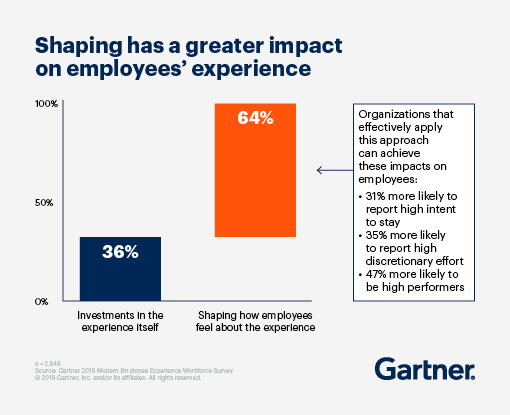In today’s competitive talent landscape, building a strong employer brand is no longer just about showcasing perks or office culture. For many candidates, especially those from underrepresented communities, it’s about authenticity, equity, and transparency. They want to know whether an organization truly values diversity, or if inclusion is just a marketing buzzword.
As a result, inclusive employer branding has become a strategic priority. And increasingly, the key to building it lies in something many HR teams already have at their fingertips: data.
By using insights from workforce tools, HR leaders can better understand employee trends, design equitable practices, and shape a brand narrative that resonates with the values of today’s diverse talent pool.
Why Inclusive, Data-Driven Brands Win the Talent War
There’s a growing body of research showing that inclusive organizations are more innovative, more productive, and more attractive to job seekers. However, inclusion isn’t just a recruitment strategy, it’s a retention strategy too. When employees feel seen, heard, and supported, they’re more likely to stay and thrive. Data-driven HR helps ensure that inclusion is embedded into every stage of the employee journey, from onboarding and development to performance reviews and beyond.
Organizations that embrace this approach will be better positioned to attract top talent, build stronger teams, and adapt to a rapidly changing world of work.
A Changing Definition of Employer Branding
Employer branding used to be about storytelling — projecting an appealing image of a company to job seekers. But the landscape has shifted. Candidates are asking tougher questions: What’s the actual employee experience like? Are people from all backgrounds being heard and supported? How does this company live up to its DEI commitments?

The answers to these questions can’t be faked. Job seekers can now access anonymous reviews, crowd-sourced pay data, and social media conversations that paint a more complete picture of a company’s culture. That means employer branding must evolve from surface-level messaging to evidence-based storytelling.
This is where data becomes indispensable. It allows HR teams to connect branding with real workforce experiences and outcomes.
How Data Reveals the True Employee Experience
Modern HR platforms — such as human capital management systems, performance tools, and employee engagement software — generate rich and varied datasets. When analyzed thoughtfully, this data reveals patterns that can be used to drive inclusive change.
For example, workforce demographics can highlight representation gaps across departments or leadership levels. Promotion and compensation data can uncover inequities, while engagement surveys can show how included and supported different groups feel in the workplace. Attrition reports can expose why people are leaving — and whether some groups are more affected than others.
These aren’t just abstract numbers. They tell stories: of barriers faced, of progress made, of opportunities missed or seized. For HR leaders, they offer a clearer, more nuanced understanding of what’s really happening inside the organization.
From Insights to Action: Driving Equitable Practices
Once HR has these insights, the next step is action. If applied effectively, these actions can shape the employee experience and lead to 31% more employee retention and increased employee productivity. Data empowers teams to go beyond broad, vague goals and implement targeted, measurable strategies for equity and inclusion.

If analytics show that women are underrepresented in senior roles, companies can take steps to address this — whether through mentorship programs, equitable promotion criteria, or leadership development opportunities. If exit surveys suggest that employees from ethnic or racial minority populations feel disconnected or undervalued, that can trigger initiatives focused on improving inclusion and psychological safety.
Pay transparency is another area where data plays a critical role. With access to compensation benchmarks and internal pay trends, organizations can identify and address wage gaps before they erode trust.
When HR strategies are rooted in data, they become more intentional and more impactful. This not only improves employee satisfaction — it also strengthens the company’s employer brand.
Crafting an Authentic, Inclusive Brand Narrative
Once an organization begins making real, data-informed progress on DEI goals, it’s time to communicate that story — but with honesty and nuance. Today’s job seekers can spot inauthentic messaging from a mile away. What resonates is a brand narrative that acknowledges challenges, celebrates progress, and demonstrates a willingness to keep improving.
Workforce data provides the foundation for that narrative. It allows organizations to move beyond vague promises and present clear evidence of their commitment to inclusion. Instead of simply saying “We value diversity,” they can share how representation has improved over time, or how engagement scores among marginalized groups have increased following specific policy changes.
This type of storytelling is especially powerful when paired with real employee voices. Testimonials backed by data — such as survey results or promotion metrics — create a narrative that is not only compelling but credible.
Challenges to Getting Started — and How to Overcome Them
Despite its benefits, adopting a data-driven HR approach isn’t without hurdles. Some companies struggle with fragmented data systems, while others worry about privacy concerns when collecting sensitive demographic information. In many cases, HR teams may lack the analytical skills needed to translate raw data into meaningful insights.
To move forward, organizations must first invest in integrated, people-focused technologies that make data collection and analysis easier. They should also provide training in data literacy so that HR professionals can feel confident working with dashboards, interpreting trends, and making data-informed decisions.
Equally important is building a culture of trust. Employees need to know that their data will be used responsibly and ethically — not just to tick compliance boxes, but to improve their experience at work.
The Future Is Inclusive, Transparent, and Data-Led
As workforces become more diverse and employee expectations continue to rise, the future of employer branding will be shaped not by slogans, but by substance. That substance comes from data — data that uncovers inequities, fuels better decisions, and helps companies tell more honest, inclusive stories about who they are and where they’re going.
For HR leaders, this isn’t just a trend. It’s a call to action. By embracing data-driven strategies, they can play a leading role in building workplaces that are not only more inclusive but also more human, more innovative, and more resilient.
Inclusion isn’t a guessing game. It’s a measurable, achievable goal. And with the right data, it’s one we can all work toward — together.
###
The Author, Dean Mathews is the founder and CEO of OnTheClock, the easy-to-use employee time tracking app that helps over 18,000 companies all around the world track time.
Dean has over 20 years of experience designing and developing business apps. He views software development as a form of art. If the artist creates a masterpiece, many people’s lives are touched and changed for the better.
When he is not perfecting time tracking, Dean enjoys expanding his faith, spending time with family and friends, and finding ways to make the world just a little better. You can connect with him on Linkedin.
###
OurOffice helps busy HR and people leaders improve hiring, engagement, and retention by building a more inclusive workplace with an easy and affordable toolset, leading to better business outcomes. Unlike one-size-fits-all solutions, the
OurOffice DEI platform is fully customizable to mix and match the right tools and ensure that you have the right solution to drive measurable impact.
Ready to take your DEI initiatives to the next level? Contact OurOffice today to learn how we can support your journey toward a more diverse, equitable, and inclusive workplace, or schedule a free session to discuss the challenges you are facing and get answers and guidance from professionals.




